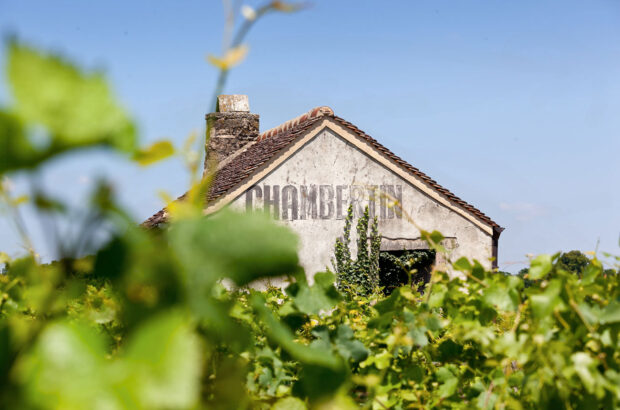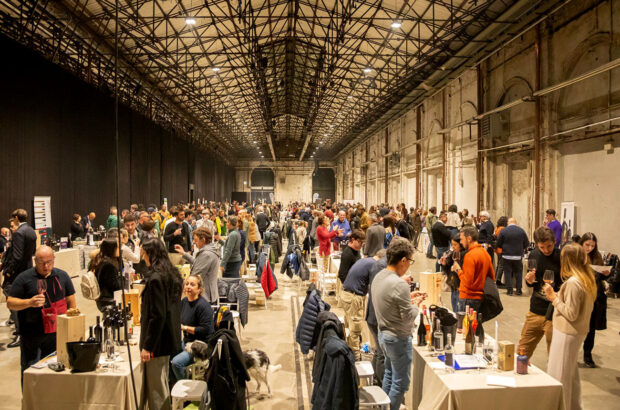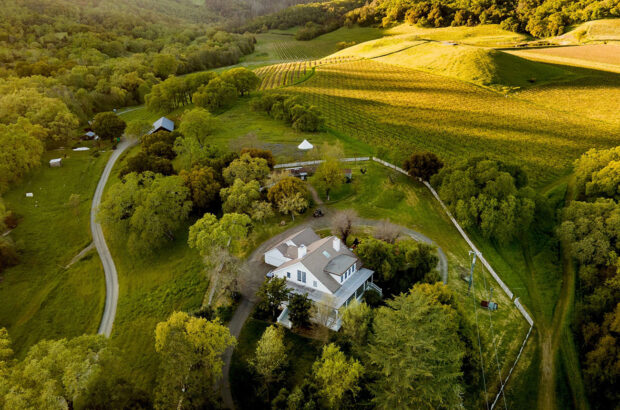Steven Spurrier investigates whether terroir or style is more important.
Which is more important – terroir or style?
‘Our only talent is to be respectful of terroir’. This was the modest quote from Christian Moueix at the tasting before dinner at Chatsworth in Derbyshire, seat of the Dukes of Devonshire. Forty-five guests had paid £800 each to taste and enjoy white Burgundies presented by Anne-Claude Leflaive and clarets from the best Moueix estates, with Champagne Salon 1996 as an apéritif, rounded off with a splendid Lot 53 Cognac from Tesseron. To judge from the wines, the style, the food, the décor and the service, this was better value than a meal in a West End restaurant, at 10 times the price and 100 times more memorable. The rich sumptuousness of the surroundings was matched by the simple grandeur of the wines in an atmosphere of privileged conviviality. The lasting impression for me was that the wines stood out as benchmarks in their appellations, the ultimate reference point.
https://www.decanter.com/interviews/decanter-interview-christian-moueix-1338/
Such quality comes first and foremost from the vineyard. Aubert de Villaine is fond of saying that at Domaine de la Romanée Conti ‘we aim to harvest at perfect ripeness and then do nothing’. Benchmarks from the last century have generally been triumphs of engineering, of which a prime example was Rolls-Royce. Even today, ‘a Rolls-Royce of wines’ means more than a ‘Pétrus of automobiles’ simply because more people have heard of the former than the latter. But perhaps the expressive purity of the world’s greatest style of wines, which have nothing ‘manufactured’ about them – de Villaine noted ‘an alliance of earth, air and fire’ in the 2004 La Tâche – could be truer benchmarks for the future?
These wines do not happen by chance, however unique the terroir. They need dedicated perfectionists to practise good husbandry and avoid the temptation of exaggeration. Such people are by definition risk-takers. Here is Corney & Barrow’s Adam Brett-Smith on Anne-Claude Leflaive: ‘her greatness lies in being courageous… transforming the estate’s viticulture, philosophy, yield, quality and perception, when the instinct might have been to do nothing’. And on Christian Moueix: ‘he was a pioneer before he became a classicist… rooted in the classical interpretation of his vineyards with a desire to push the boundaries.’
https://www.decanter.com/wine-news/anne-claude-leflaive-nephew-to-run-family-domaine-345/
Another such perfectionist is Rémi Krug. To celebrate his nomination as honorary chairman of Krug, retiring at 65 from his day job as roving ambassador for the brand, a tasting and dinner was held in London showing Krug vintages back to 1964. Dedicated Krugistes such as Andrew Lloyd Webber and Stuart Rose (Chief exec at M&S) were present, alongside many captains of industry and a handful of fortunate wine writers. In his article ‘So does terroir not exist in Champagne?’ in May’s Decanter, Andrew Jefford takes Rémi Krug to task for, to put it simply, blending across the region. The 10 vintages shown in London would have been an honourable defence. They represented the characteristics of each vintage perhaps more dramatically and more precisely than other Champagne houses. On the palate Krug is Krug, unashamedly elitist, and the Krug family and LMVH, the recent owners, intend to keep it this way. So here is a benchmark that is made by the weather, in the cellar, but not in the vineyards.
While the Leflaive and Moueix perfectionism spills over into a more affordable, democractic wine– I have their Bourgogne Blanc and Château Maquin Saint Georges in my cellar, but precious little of the grander appellations – Rémi Krug does not produce mini-Krugs. His Champagnes are works of art where the skills of his elder brother, Henri, transform the base wines into something exceptional. Instead of terroir, there is style, Hugh Johnson remarking that ‘you can taste the 1964 and go back to the 1995 and find the same profile, same character’.
The litmus test of a benchmark or a style is in its power to last at the top. In Britain the Queen, John Lewis and Marmite have remained there due to a combination of quality and functionality. Dyson has replaced Hoover as the product is better, and British automobiles have largely ceased to exist, with the exception of Brett-Smith’s beloved Bristol, and the recent return of the Aston Martin to Britain. Most wines are functional, many are unique, but very few are memorable and this is the quality that resonates. One really memorable wine from time to time gives the wine lover both respect for the past and hope for the future. Commenting on his Château Magdelaine 1961, Moueix said ‘here is elegance that goes beyond appreciation, that takes one to another level, that shows we are part of history.’
The modesty of vignerons like Leflaive and Moueix is only matched by the desire of the lucky few to acquire their wines. En primeur offers are over-subscribed many times over, the wines sometimes reappearing at ever-increasing prices. Such is the market, but the truth is that they are a beacon for excellence.
What Steven’s been drinking this month
Greek whites
In early March I judged at the Thessaloniki Wine Competition and had the good fortune to share meals with my two favourite producers. Vangelis Gerovassiliou’s new estate
Biblia Chora’s 2006 Areti (100% Assyrtiko) is minerality personified: Angelos Iatridis’ Alpha Estate 2006 Sauvignon Blanc is a new worldwide benchmark for this variety.







